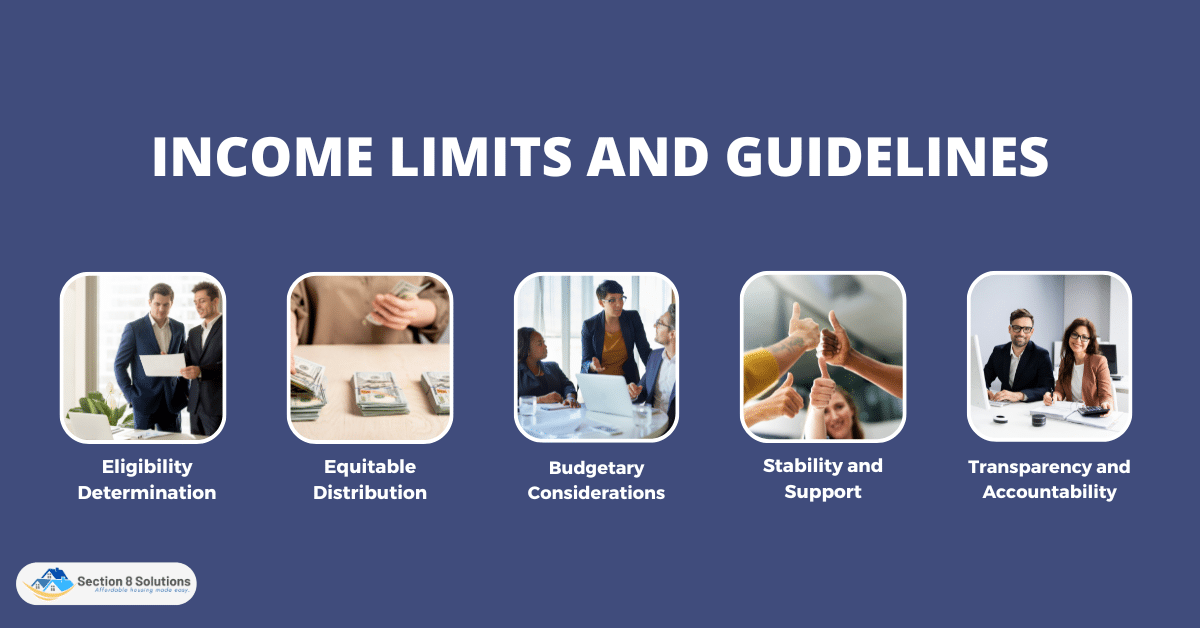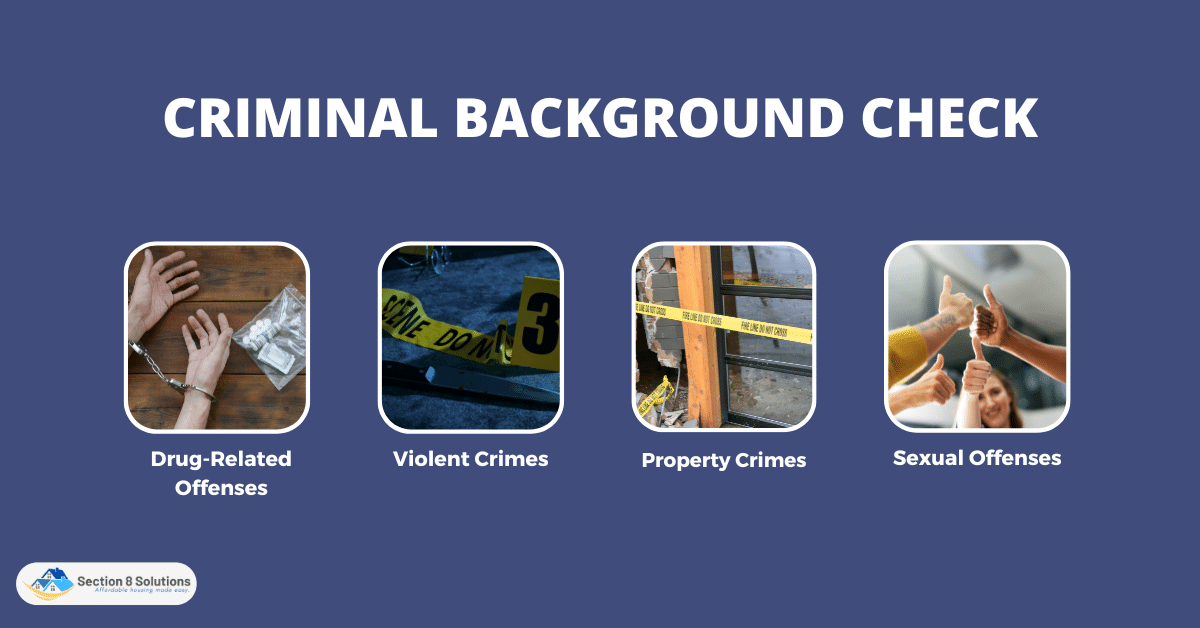Section 8 eligibility requirements in Oregon determine an individual’s eligibility for the federal housing assistance program. To qualify, applicants must meet income limits set by the Department of Housing and Urban Development (HUD) based on family size and county of residence. Additionally, applicants must be U.S. citizens or eligible non-citizens and have no history of certain criminal activities.
In this blog, we will delve into the key eligibility criteria that potential applicants in Oregon must meet to avail themselves of Section 8 benefits.

Income Limits and Guidelines
The HUD determines income limits for each county in Oregon based on the area median income (AMI), which varies depending on family size and location. They consider a family’s total gross income, including wages, tips, overtime pay, Social Security, disability benefits, and other sources. HUD classifies households into different income groups like extremely low-income (30% of AMI) and very low-income (50% of AMI) to set the income limits. Adhering to the income guidelines is of paramount importance in the Section 8 program for several reasons:

- Eligibility Determination: Meeting the income criteria is the primary factor in determining whether an individual or family qualifies for Section 8 assistance. Those whose income exceeds the set limits may not be eligible for the program, as it is designed to prioritize households facing financial challenges.
- Equitable Distribution: Income limits ensure that the limited resources of the Section 8 program are allocated fairly among eligible applicants. By targeting those with lower incomes, the program can reach those who are most vulnerable and in greatest need of affordable housing.
- Budgetary Considerations: Adhering to income guidelines helps housing authorities manage the program’s budget effectively. By focusing on households with lower incomes, they can stretch available funds to provide assistance to a larger number of families.
- Stability and Support: For eligible participants, Section 8 assistance can offer stability and a sense of security in their housing situation. By ensuring that beneficiaries fall within the prescribed income brackets, the program helps individuals and families maintain stable housing situations, reducing the risk of homelessness and housing instability.
- Transparency and Accountability: Adhering to the income guidelines ensures transparency and accountability in the program. It prevents misuse or abuse of the system, ensuring that the benefits go to those genuinely in need.
Understanding the income limits and guidelines established by HUD is crucial for anyone considering applying for the Section 8 program in Oregon. By adhering to these income criteria, applicants can determine their eligibility accurately and increase their chances of receiving the much-needed housing assistance that can make a profound difference in their lives.
Citizenship and Immigration Status
The Section 8 housing assistance program in Oregon serves as a vital lifeline for low-income individuals and families seeking affordable housing. To ensure that the program reaches those who are lawfully eligible, specific citizenship and immigration status requirements are in place.
Citizenship and Immigration Status Requirements for Section 8 in Oregon
To qualify for Section 8 housing assistance in Oregon, applicants must meet one of the following criteria:
- U.S. Citizens: Individuals who are U.S. citizens either by birth or through the process of naturalization are eligible to apply for Section 8 benefits.
- Eligible Non-Citizens: Certain categories of non-citizens, including lawful permanent residents (green card holders), refugees, individuals granted asylum, and others with eligible immigration statuses, can also qualify for Section 8 assistance.

Documentation and Verification Process
Applicants seeking Section 8 benefits will need to provide relevant documentation to verify their citizenship or immigration status. Commonly accepted documents include:
|
Type of Applicant |
Accepted Document |
Purpose |
|
U.S. Citizens |
U.S. Birth Certificate |
Proof of U.S. citizenship |
|
Naturalized Citizens |
Naturalization Certificate |
Evidence of U.S. citizenship through naturalization |
|
Lawful Permanent Residents |
Permanent Resident Card (Green Card) |
Verification of lawful permanent resident status |
|
Refugees and Asylees |
Refugee Approval Notice or Asylum Approval Letter |
Confirmation of refugee or asylee status |
By providing the appropriate documentation, applicants can verify their citizenship or immigration status, ensuring their eligibility for Section 8 benefits in Oregon.
Criminal Background Check
A criminal background check is an essential component of the Section 8 housing assistance program in Oregon. While having a criminal history does not automatically disqualify an individual from the program, certain specific criminal activities can impact eligibility.
While the impact of a criminal history varies depending on the housing authority’s policies and the severity of the offenses, certain criminal activities may affect eligibility for Section 8 in Oregon. These may include, but are not limited to:

- Drug-Related Offenses: Convictions related to the manufacturing, distribution, or possession of illegal drugs may impact eligibility. This includes both felony and misdemeanor drug offenses.
- Violent Crimes: Convictions for violent crimes such as assault, battery, robbery, and homicide may affect eligibility for Section 8 assistance.
- Property Crimes: Offenses like burglary, theft, vandalism, and arson may also have an impact on eligibility.
- Sexual Offenses: Individuals with convictions for sexual offenses may face restrictions and potential disqualification from the program.
Housing authorities in Oregon may impose restrictions or waiting periods for applicants with certain criminal convictions. The nature and severity of the offense, as well as the time elapsed since the conviction, will be taken into consideration when determining eligibility.
It is important to note that restrictions and waiting periods are not set in stone and may vary depending on the housing authority’s discretion and applicable federal, state, and local regulations. Some convictions may result in a temporary suspension of eligibility, while others could lead to permanent disqualification.
Housing Preferences
In Oregon’s Section 8 program, certain housing preferences are in place to address the unique needs of specific groups, prioritizing their access to affordable housing. These preferences are designed to offer housing solutions that cater to the elderly, disabled, and veterans, recognizing their distinct circumstances and requirements. The program aims to provide a supportive and inclusive environment by prioritizing these vulnerable populations in the allocation of housing assistance.
By giving preference to the elderly, disabled, and veterans, the Section 8 program strives to ensure that these individuals and their families receive the housing support they deserve, promoting stable and secure living conditions for those who have served their country, experienced disabilities, or reached their senior years.

Verification of Information
Ensuring accuracy and eligibility are paramount in the Section 8 housing assistance application process. The housing authority conducts a meticulous verification process to confirm the authenticity of the information provided by applicants. This verification encompasses various aspects, including income, identity, citizenship, criminal background, assets, rental history, and special circumstances.
By thoroughly verifying the information, the Section 8 program can maintain fairness and integrity, ensuring that housing assistance reaches those who truly qualify for the program. It also helps prevent potential fraud or misuse of resources, allowing the program to effectively support eligible individuals and families in securing affordable and stable housing. Providing precise and up-to-date information is essential for a smooth application process and for maximizing the positive impact of the Section 8 program on the lives of those in need.

Conclusion
Understanding Section 8 eligibility requirements in Oregon is vital for those seeking affordable housing. Thoroughly reviewing the criteria and providing accurate documentation is crucial for a successful application. By meeting the eligibility guidelines, potential applicants can increase their chances of accessing the housing assistance they need for a stable and secure living situation.










